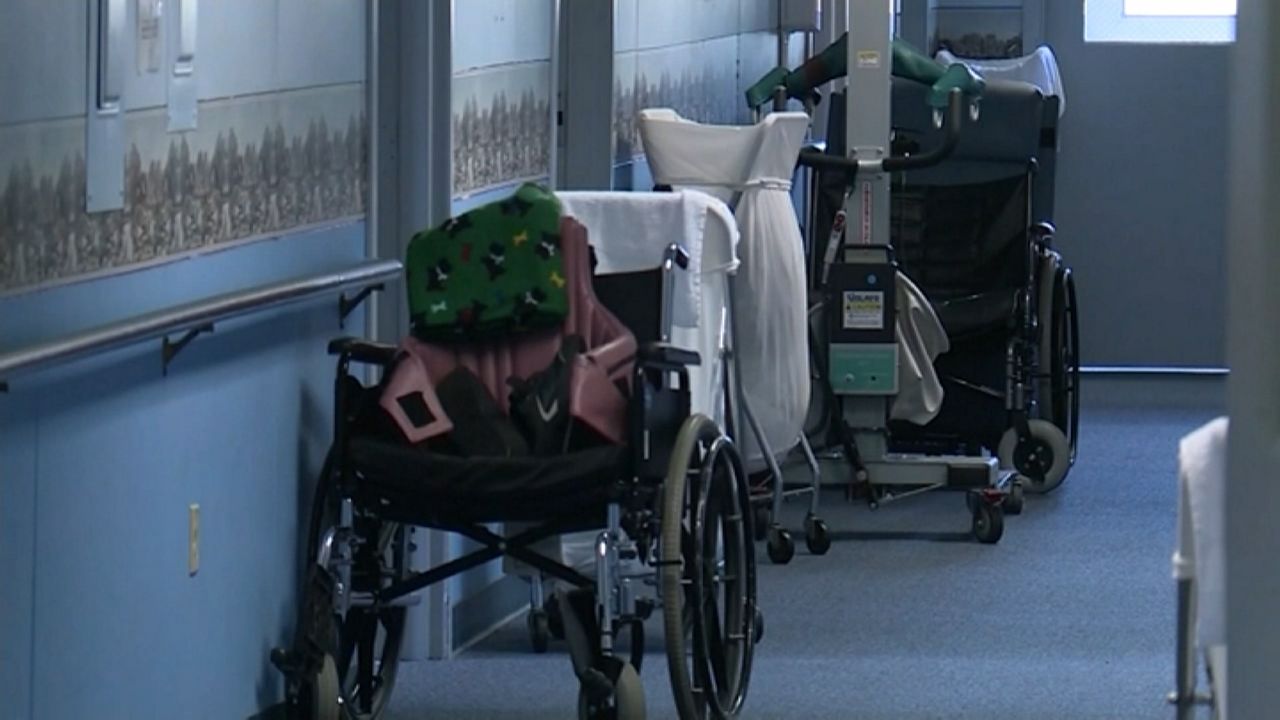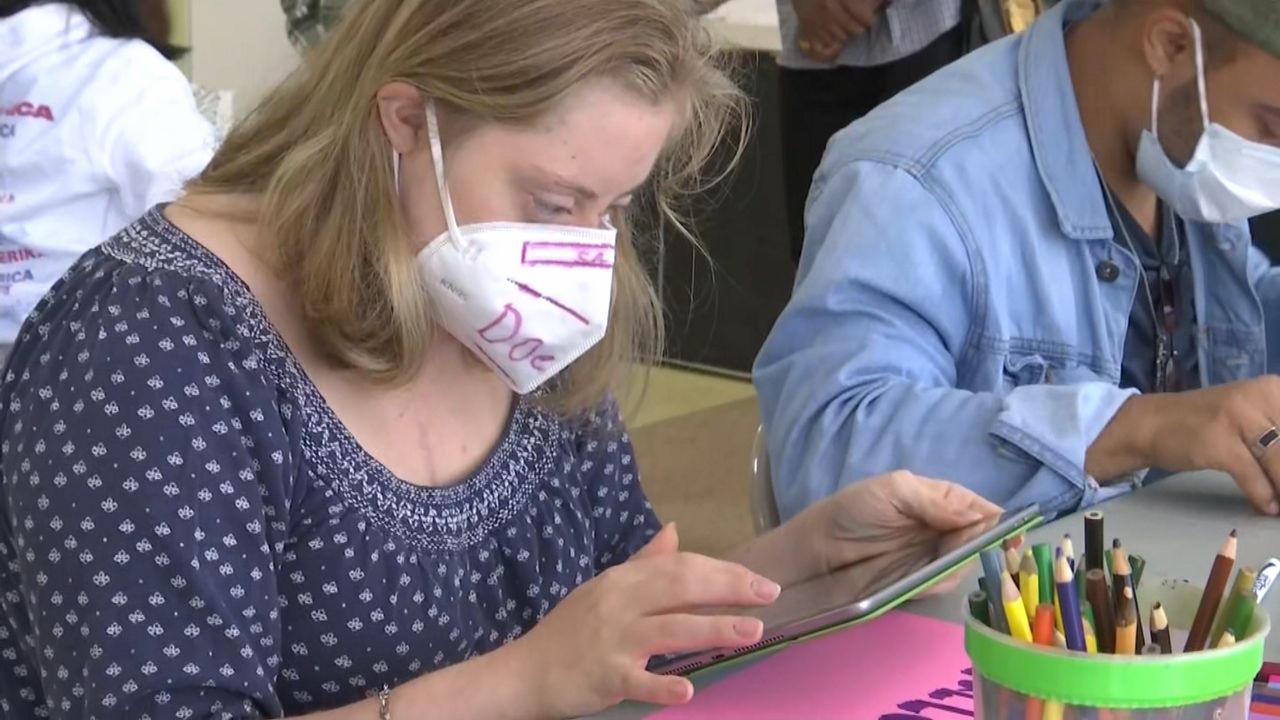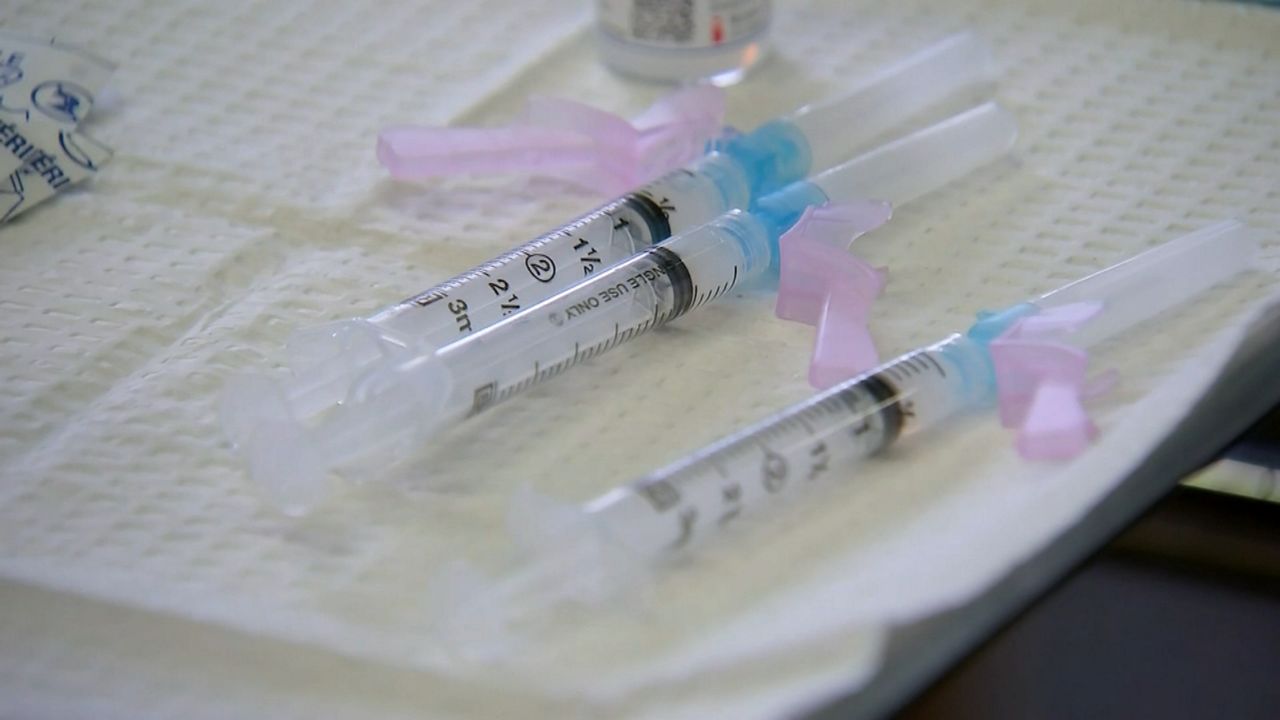Marcella Goheen has not seen her husband Robert since March 12. Robert has been living in a nursing home in Manhattan for the last four years with a rare, undiagnosed neurodegenerative disorder.
"It was sudden, it was quick,” Goheen said, reflecting back on the moment her husband entered the nursing home. “I remember looking at him in the room thinking it was going to be two weeks."
The disorder left him unable to walk and talk, but still able to understand.

(Marcella Goheen and her husband Robert.)
Each day he has lived in the facility, Goheen has visited, providing additional care. Her care, she said, has maintained his highest level of function — that was until the pandemic hit and visitors were banned.
"Now, he can't be connected to basic care,” Goheen said. “He has been used to [it] for the past four years. That is a part of his medical care.”
Goheen said her husband tested positive for COVID-19 during the surge of cases, but survived. In the months since, she said his health has declined without her daily visits and that extra care.
"There are no words for the whole journey. It’s tragic,” said Goheen.
Goheen said that her husband is a part of the 10% of patients in long-term care facilities who rely on daily essential visits from loved ones.
She has created a support group with other essential care visitors and has worked with them to advocate a plan to lift current restrictions to allow their visits with precautions in place to keep those they care for safe.
"Every patient in a nursing home in a residential facility has that right to maintain and be exposed to support — medical support, family support — to have their highest level of functioning,” said Goheen. “Well, in COVID pandemic landscape, how are we achieving that if we can’t get in?”
In July, the state Department of Health announced nursing homes and long-term care facilities would be allowed to resume limited visits only if the facility has been without a positive COVID-19 test for 28 days.
“[If] one staff member tests positive, we are back to, say, [stage] one. So we are not going to get in with this system for another year,” Goheen said.
State Senator Rachel May, who represents parts of upstate, has proposed a bill that would amend public health law and allow personal care visitors to provide supplemental care.
Goheen said it could take weeks to pass and caregivers like herself want immediate action from the governor.
"It just needs to be extracted into an executive order, like 14 other states. Because if we don't do that, we are contributing and we are being complicit,” Goheen said. “It is between life and death right now. We are killing them.”
In a statement, the Health Department said it continues to monitor data and review reasonable requests.
“DOH understands how painful it is for families to not see their loved ones, and the challenges facilities face as they work to protect residents from the asymptomatic spread of COVID-19 while trying to reopen to outside visitors,” the statement reads. “The number of nursing homes that are eligible to reopen to visitors, and the number that have taken the next steps, shows they are being smart and cautious. DOH will continue to monitor the data and review reasonable requests, while also recognizing that this pandemic is not over and people are still at risk.”
In the meantime, Goheen is working towards getting her certified nurses assistant certificate in hopes of being hired by the facility her husband is staying in.
She and her advocacy group have a rally planed for outside Governor Cuomo's midtown office on Saturday.









